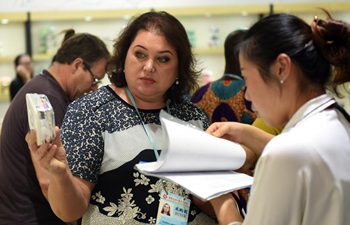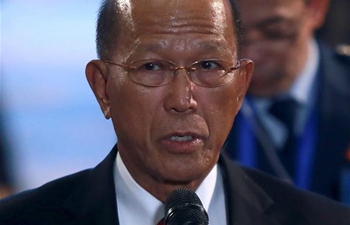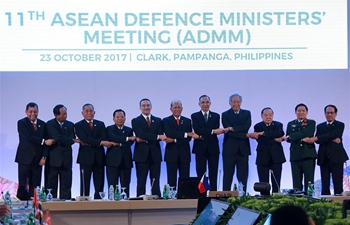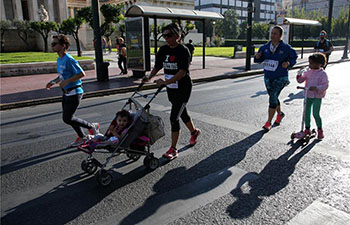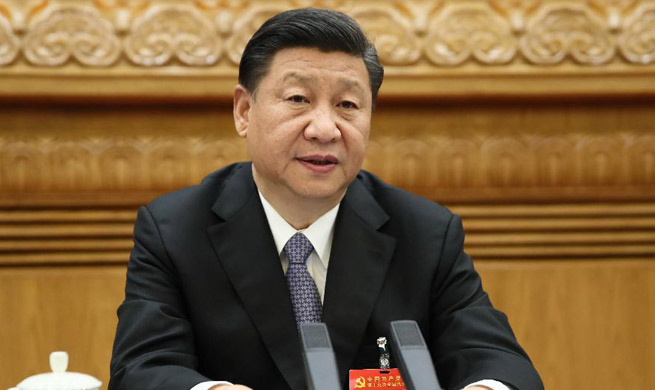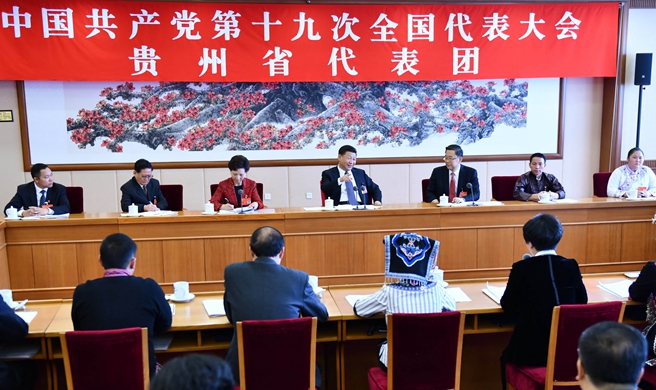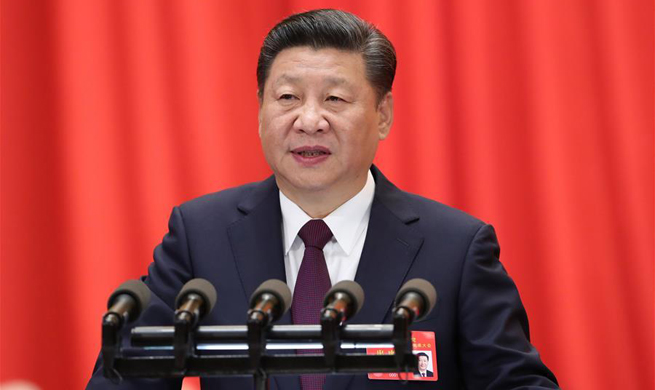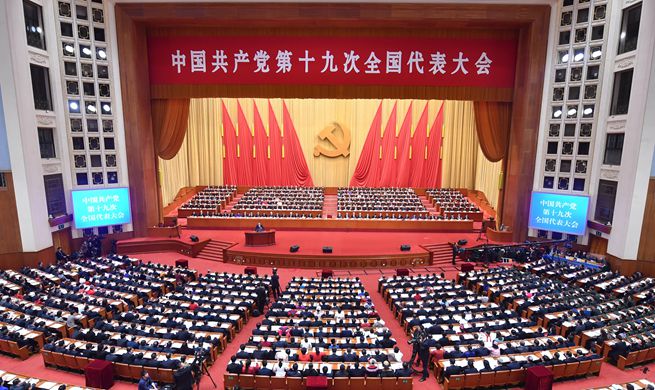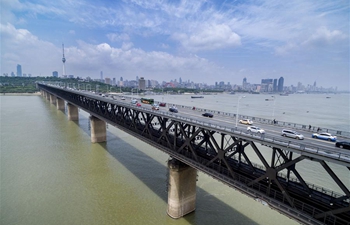by Mahmoud Darwesh
TRIPOLI, Oct. 23 (Xinhua) -- Six years have passed since the liberation that ended the rule by late strongman leader Muammar Gaddafi, many Libyans are feeling frustrated today while still clinching to the hope for a better future.
Nowadays, in the eyes of many Libyans, the Oct. 23, 2011 liberation is a failure, as the country has since been torn in a spiral of violence and terror due to a civil war has been gripping the once rich North African country.
"It is a new day of disappointment for most of the Libyan people. We only witnessed killing and destruction of our country," Mohamed Al-Jali, a 23-year-old student at Tripoli University, told Xinhua.
He said the politicians in the February 2011 uprising once promised that the monthly salary will jump to 4,000 Libyan dinars, but the reality now is the vast majority of the people today cannot even earn 500 dinars (equivalent to about 60 dollars on the black market) a month.
"They humiliatingly spend days and nights in front of banks to withdraw only small part of their savings." Al-Jali added.
Indeed, Libya is suffering from a severe financial crisis, as people can only withdraw 500 Libyan dinars from their bank accounts every two months because local banks lack funds.
Then October 2011 liberation from the Gaddafi rule came after battles between rebels, supported by the U.S.-led western powers, and the regime's forces for more than eight months.
But the liberation did not bring about peace, stability and better life as many had hoped. On the opposite, it opened the Pandora box of violence and terror attacks.
"The revolution only brought destruction and terrorism. The death of our people became common everyday," said Ibtisam Naili, a university professor who dubbed the 2011 revolution "a crime against our suffering people."
The uprising led to further social division in the country with a long tradition of tribes. Today, some Libyans still hate some tribes because they support the Gaddafi regime, Naili noted.
Abdullah Al-Rais, a political analyst, echoed the assessment. "The revolution divided the people into supporters and opponents, which is very dangerous and threatens social peace for years," he told Xinhua.
Ali Hadid, who used to be a member of the rebels in Misrata city, described the 2011 revolution as flawless, but admitting it became a failure because "we failed to implement its objectives."
"If its objectives were implemented, Libya would have been an example of revolutionary nationalism," Hadid said, recalling the celebration held after the downfall of the Gaddafi regime in 2011, which was even hailed by many of Gaddafi supporters.
He pointed out that the revolution called for freedom, human rights, and liberation from security oppression, which appealed to many Libyans at that time.
Fatima Al-Magrahi, a social researcher from southern Libya, told Xinhua that joy has been absent from Libya for six years now. He said it is hard to celebrate the uprising as terror attacks, bloodshed and displacement are plaguing this country.
Nevertheless, there is still hope that peace will prevail the war-torn country, where a civil war drags on between the internationally recognized government based in the eastern city of Tobruk and the rival New General National Congress based in Tripoli.
The UN Support Mission in Libya (UNSMIL) expressed hope on Monday that next year would witness the holding of presidential and legislative elections in Libya that would help Libya end the state of uncertainty and start the process of transition to security and peace.
It said that "the aspirations of the Libyan people of stability, development and prosperity would be realized."
Signs of hope have emerged as two UN-sponsored dialogues of the Libyan unified drafting committee, representing the House of Representatives and the Higher Council of State, were held in Tripoli to discuss amendment of the current political agreement.
It was agreed to form a new Presidential Council of three members instead of nine, and separating it from the government.
All what remains is an agreement on the mechanisms for selecting the members of the council and the prime minister, as well as defining the functions of each body.
Ghassan Salame, head of the UN mission, proposed an action plan to end Libya's political stalemate. It includes amendment of the current UN-sponsored political agreement, holding a UN-sponsored national conference for all of Libya's political factions, adopting a constitution, and finally electing a president and a parliament.
Al-Magrahi believed that more and more Libyans will turn the page on the 2011 uprising, and seek to rebuild the war-torn country.
"The Libyan people must ignore the anniversary of liberation, not to diminish the supporters of the revolution, but to overcome the past, and start over and try to build our country with everyone's efforts," he said.
Al-Rais also sounded an optimistic tone when looking into Libya's future.
After so many years of suffering, many Libyans now realize that they have to overcome the past, including the revolution and the liberation, and move on with their life, he said.
Al-Rais cited the new change in the relationship between two of his neighbors, who have become friends now though they used to take opposite stances toward the 2011 uprising.
"When I asked about this change, they told me they will no longer remain enemies because of their positions. This makes me optimistic for the future," he said.




